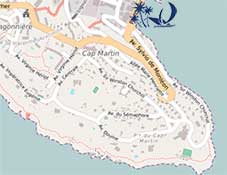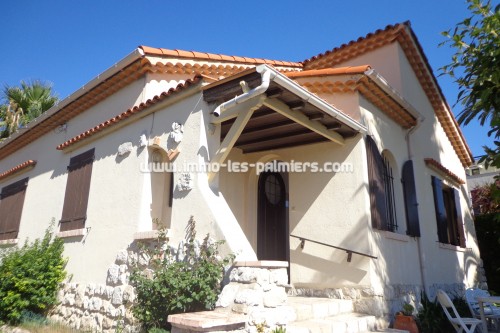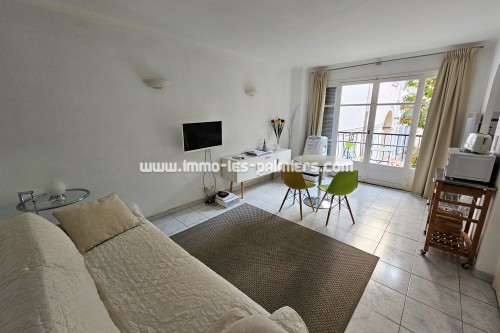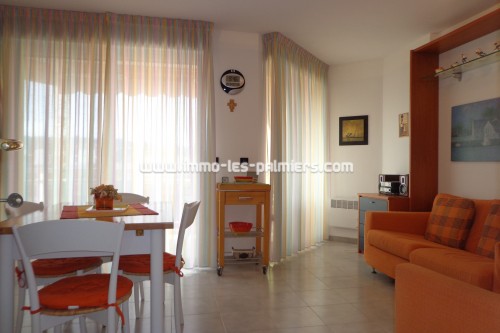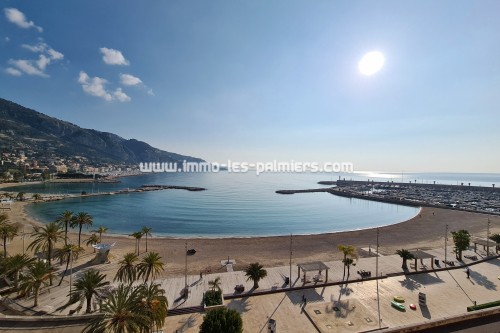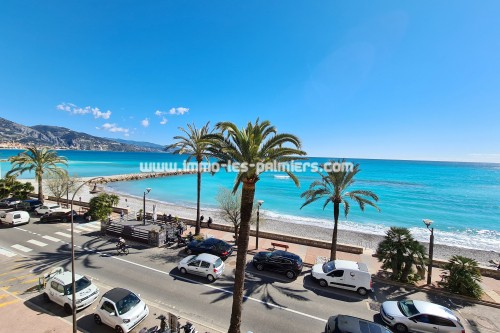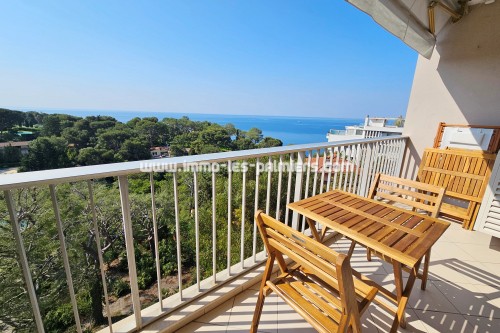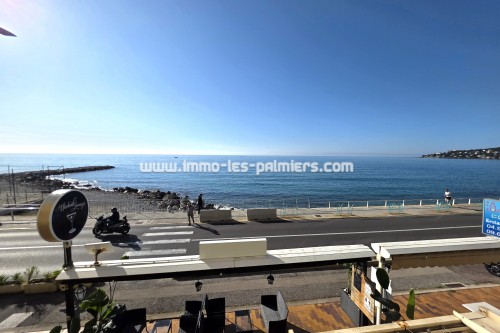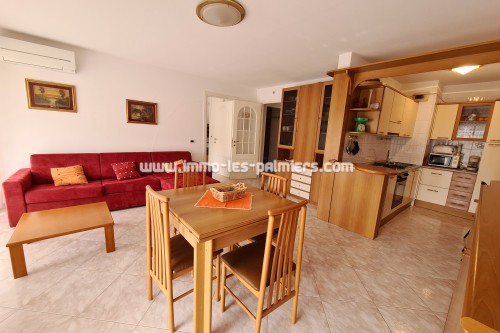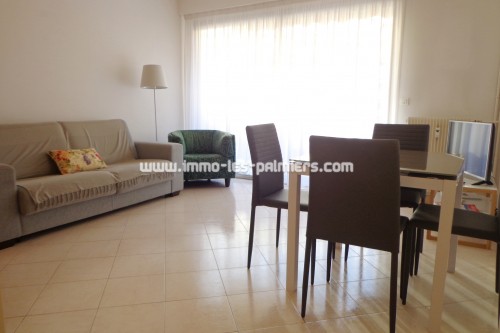THE STAGES OF YOUR REAL ESTATE SALE
REAL ESTATE AGENCY ROQUEBRUNE CAP MARTIN
REAL ESTATE AGENCY
SALES - THE STAGES OF YOUR REAL ESTATE SALE
The process of a good secure sale at Les Palmiers agency
STEP 1 - Estimation of the property
The estimate is essential for a successful sale, thanks to your agency which, thanks to its professionalism, will indicate the real market price after a study which takes into consideration several elements, namely the characteristics of the property for sale, the location, the surface area, the services, the exposure, the type of construction, the equipment, the overall condition of the property, the annexes (garage, parking or cellar).
STEP 2 - The Mandate
The mandate is compulsory to put your property up for sale with an estate agent. The mandate is the act by which you appoint an estate agent or a notary to look for a buyer. Did you also know that the agency covers the risks of accidents that may occur with visitors and that, without a mandate to sell, the seller alone takes the risks. Depending on the mandate, the seller can entrust the sale of his property to different actors.
Two types of mandate are available to you
- the exclusive sales mandate: this type of mandate offers the seller the virtual certainty of a sale. This exclusive mandate allows the mandated professional to make the most of the communication and advertising advantages (for a fee) necessary for the rapid completion of your sale project. Your property will therefore be more visible on the networks specialising in real estate, which will increase the chances of your sale at the best price. Finally, after each visit a report is also debriefed with you. Entrusting your property to a single agency is also easier to manage for the owner, especially in terms of organising visits and handing over the keys. The owner only has one contact person to deal with, which will allow him to sell his property with complete peace of mind.
- The simple sales mandate: On the other hand, a property entrusted to several agencies may be presented on the websites at different prices, which may confuse potential buyers and give a negative image to the sale of your property. A single advertisement in the window, from a mandated professional, could also limit the chances of selling your property quickly. The simple mandate allows you to contact as many agencies as you wish and to look for a buyer yourself. It is your responsibility to inform all the agencies with which you have a mandate when the compromis or the promesse unilatérale is signed. Only the agency that has carried out the sale will be entitled to a fee. The mandate, whether simple or exclusive, must be in writing and for a specific period.
- The sale mandate must contain :
• designation of the seller (principal): This may be a single person, or several in the case of an undivided property. The contact details of each person must be specified.
• Details of the agent (mandataire): He may act in his own name (independent agent) or on behalf of an estate agency. In all cases, the agent must hold an estate agent’s licence, the number of which must appear on the mandate.
• Description of the property: the property for sale must be detailed. In addition to the address, an exhaustive description of the facilities and annexes must be provided.
• Price of the property: This is the amount that will be advertised and announced to future buyers.
• Agency fees: This is the remuneration that the agent will receive in exchange for his services and other benefits. It is important to remember that agency fees are only payable in the event of an actual property sale, after the deed of sale has been signed at the notary’s office. The mandate itself does not trigger any remuneration. The amount of the agency fees must be specified in the sales mandate.
• Duration of the sales mandate: This is generally 3 months, although the law does not specify a duration. At the end of this initial and irrevocable period, it is extended in one-month increments by tacit (and optional) renewal until termination. The maximum duration of the sales mandate may also be specified, often one year.
STEP 3 - Opening a complete file
After signing the mandate of your choice, other documents will be required before you can start marketing your property and visiting it.
• The title deed or certificate of sale.
• Identification of the seller(s).
• The property diagnoses.
• The property tax.
In addition for a flat:
• The co-ownership regulations.
• The last 3 minutes of the General Assembly.
• The statement of your accounts within the co-ownership, establishing in particular the amounts of the working capital and the advances for provision.
• The co-ownership charges.
STEP 4 - Showcasing your property
In order to optimise and realise the sale of your property in good conditions, it is advisable, if possible, to depersonalise and de-clutter as much of the premises as possible and thus allow future buyers to project themselves as well as possible.
STEP 5 - Visits
Once your file is complete, the visits can begin. Your estate agent will be able to propose your property to potential buyers. He or she will be sure to inform you of any upcoming visits.
STEP 6 - Finding the buyer
Les Palmiers agency is a family business with experience in the Roquebrune Cap Martin, Menton and surrounding areas since 1967. The agency is also equipped with modern technical and communication means with a last generation website but also collaborative agreements with big companies specialized in real estate (AirBnb, Apimo, Logic-immo, Seloger) without forgetting the social networks with our dynamic and regularly updated Facebook page. All these advantages allow us to be seen by potential buyers by highlighting the sale of your property.
STEP 7 - Offer to purchase
The offer to purchase a property is a proposal made by the buyer who commits to the purchase of your property at the price and conditions previously set.
The seller’s options on the offer to purchase
Upon receipt of a purchase offer, the seller has three options:
1 - Accept the offer to purchase
2 - Make a counter-offer
3 - Refuse the offer to purchase
STEP 8 - The promise to sell and/or the compromise sale ?
• In the promise to sell, the owner undertakes to sell the property to the prospective buyer (called the beneficiary) at a specific price. He thus gives him an exclusive "option" for a limited time (generally two to three months). To be valid, the promise of sale must be registered with the tax authorities within ten days of signing. Moreover, when it is agreed for a period of more than 18 months, it must be drawn up in the form of a deed. The registration fee, paid by the purchaser, is €125. Often in a hurry to conclude, buyers and sellers sometimes imagine that signing the preliminary contract does not commit them to much. This is not true: despite its name, this preliminary agreement constitutes a real "contract", which entails important obligations for both parties. It allows them to specify the conditions of the future sale and marks their agreement. Although it is not legally binding, this document is therefore essential.
• In the preliminary sales agreement, both the seller and the buyer undertake to conclude the sale at a price determined jointly. In legal terms, the preliminary sale agreement is therefore equivalent to a sale. If one of the parties renounces the transaction, the other can force him to do so by legal means, and can also demand damages. The signing of the compromis is accompanied by the payment by the purchaser of a sum of approximately 5% to 10% of the sale price. This is called a deposit and will be deducted from the price when the notarial deed is signed. Unlike the promise to sell, the compromis does not need to be registered with the tax authorities. This absence of fees is an advantage. However, in the event of a dispute over the fulfilment of the conditions precedent, the parties will be bound by the compromis de vente, unless there is an amicable agreement or a court decision, whereas in the case of a unilateral promise to sell, the parties regain their freedom if the option is not exercised by the purchaser. The SRU law guarantees a 10-day cooling-off period for the purchaser of a new or old home. When you sign the preliminary sales agreement or promise to purchase at the notary’s office, you have 10 days to withdraw. This period is mandatory and cannot be exceeded.
STEP 9 - Final visit before signing the deed of sale.
This last visit is very important, as it allows you to check the condition of the property sold, to ensure that it conforms to the description in the compromis or promesse de vente and finally to read the meters. The buyer can then sign the purchase of the property in complete security.
STEP 10 - Deed of sale
This is a legal act that formalises the sale of a property, house, flat or land. The conclusion of the final sale thus requires the signing of the deed of sale by the notary. This legally establishes the transfer of an asset from the seller to the buyer.
STEP 11 - Handover of the keys
The keys will be handed over and the buyer will become the owner of the property. You will then have sold your property in complete security, supervised by real estate professionals.
Here all our real estate advice for sale, rental management and other information for our seasonal rentals
Want to sell or rent your property, our sales and rental services will estimate the market or rental value of your property
If you have any questions about a real estate project, a holiday rental or the management of your apartment, our team is at your disposal
